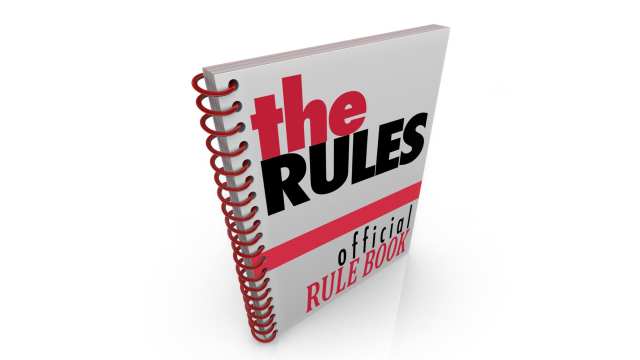Amazon won’t sell porn, but will sell anti-vaxxer books

Pixabay
- Tech companies like Facebook, Pinterest and YouTube have all recently moved to ban, demonetize or otherwise moderate content related to anti-vaccination causes.
- Amazon, which currently sells documentaries, books and merchandise created by anti-vaxxers, has offered no plans to do the same.
- How much responsibility private companies should take when it comes to keeping potentially dangerous information from the public remains an open question.
Amazon has no stated plans to moderate or remove anti-vaccination content from its platform, as Facebook, YouTube and Pinterest have done or agreed to pursue in the past week.
It has some asking: How much responsibility – if any – should tech companies take when it comes to keeping potentially dangerous information from the public?
When asked about it, the world’s largest online retailer said:
“As a bookseller, we provide our customers with access to a variety of viewpoints, including books that some customers may find objectionable. That said, we reserve the right not to sell certain content, such as pornography or other inappropriate content.”
Facebook and Google, which owns YouTube, also block pornographic and what they deem to be inappropriate content – hate speech and bullying, for example. However, both platforms did little to enforce any standards on anti-vaccination content.
In February, weeks after one of the worst U.S. measles outbreaks of recent memory, Rep. Adam Schiff, D-Calif., sent an open letter to Facebook and Google, expressing concern that the companies are “surfacing and recommending information that discourages parents from vaccinating their children, contributing to declining vaccination rates which could reverse progress made in tackling vaccine-preventable diseases.”
“The algorithms which power social media platforms as well as Amazon’s recommendations are not designed to distinguish quality information from misinformation or misleading information, and as a result harmful anti-vaccine messages have been able to thrive and spread,” Schiff said in a statement to CNN Business.
Following Schiff’s letter and a BuzzFeed News report detailing how some advertisers had started pulling ads from anti-vaccination videos, YouTube announced it would begin demonetizing anti-vaxxer content. The company also said it was working on algorithmic changes to its Up Next feature, which critics said was offering an array of anti-vaccination content to people who’d maybe watched only one video. Needless to say, some anti-vaccination content creators were angered.
“It is … unfortunate that YouTube does not see the value in advertisers reaching a very large and thriving demographic who believe in alternative medicine, holistic health and natural remedies,” Larry Cook, the anti-vax leader behind StopMandatoryVaccinations, told BuzzFeed News. “Shutting down monetization on alternative health channels just means that alternative health advertisers will go elsewhere to reach their intended audience.”
Meanwhile, Facebook said it’s working with third-party experts to examine the issue, while Pinterest has taken the more extreme approach by outright banning anti-vaxxer accounts and content.
Where does that leave Amazon?
If you search “vaccines” in Amazon Prime Video, the first result you see is “Vaxxed: From Cover-Up to Catastrophe”, a documentary directed by Andrew Wakefield, the British doctor who lost his medical license after publishing a now-discredited study attempting to link vaccines to the development of autism. Elsewhere on Amazon, you can find similar anti-vaxxer products for sale: a film called “Shoot Em’ Up: The Truth About Vaccines” and a shirt that reads “KEEP CALM AND DON’T GET VAXXED”.

Some say profit is the main reason why Amazon won’t remove the products from its digital shelves.
“It’s dirty money,” Dr. Paul Offit, a professor of pediatrics at the Children’s Hospital of Philadelphia, told CNN. “What Amazon is willing to do is, for a price, put bad information out there. They should be held accountable. … There aren’t two sides to the science. Vaccines don’t cause autism, diabetes, MS, or any of the other chronic disorders anti-vaccination proponents claim.”
Should private companies block anti-vaxxer products? In his open letter, Schiff suggested the answer is yes: “Every online platform, including Amazon, must act responsibly and ensure that they do not contribute to this growing public health catastrophe.”
To be sure, Schiff isn’t arguing that lawmakers should force Amazon to stop selling anti-vaccination products. After all, the restriction of free speech, or its distribution, is only legal when such speech incites “imminent lawless action.” Anti-vaxxer content, though maybe indirectly dangerous, doesn’t meet that standard.
Corporate censorship and free speech
If Amazon were to make the move on its own terms, it wouldn’t be the first time the world’s largest online retailer has engaged in a form of corporate censorship. In 2013, for instance, Amazon began banning erotica books featuring fantasies related to incest, rape and, of course, monster sex, which, by the way, is exactly what it sounds like and includes such titles as Christie Sims’ “Taken by the Pterodactyl”. Since, Amazon has taken steps to ensure books dealing with erotic subjects sometimes appear farther down on searches.

Of course, the very existence of corporate censorship highlights the fact that the government isn’t the only power in society that can silence free speech. Society itself – its businesses, institutions and prevailing beliefs – is perfectly capable of silencing speech without help from the law. But is society’s suppression of free speech always a bad thing? If we’re positive, let’s say, that vaccines don’t cause autism, then should we encourage non-governmental forces to suppress speech that says they do?
One compelling, yet perfectly debatable, argument comes from John Stuart Mill in his seminal book, “On Liberty”.
“If all mankind minus one, were of one opinion, and only one person were of contrary opinion, mankind would be no more justified in silencing that one person, than he, if he had the power, would be justified in silencing mankind.”





